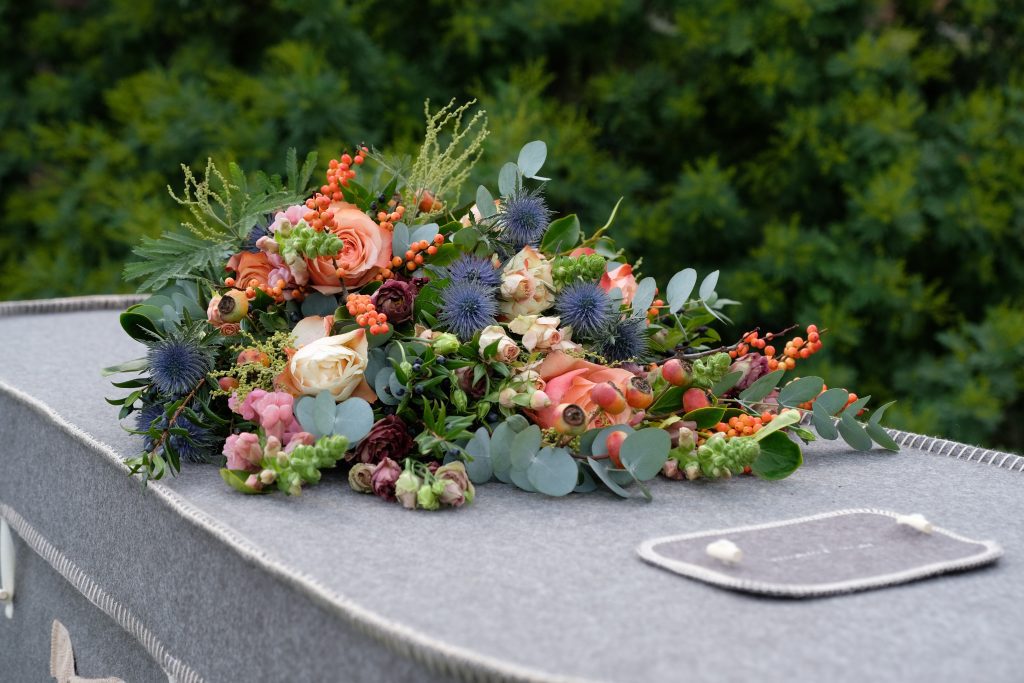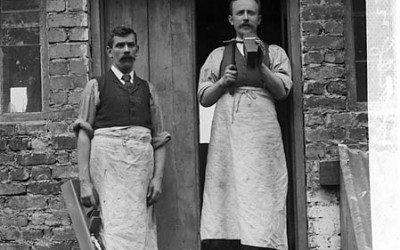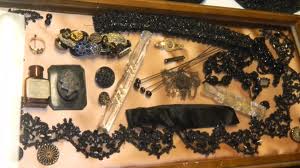
If you want a personal funeral that reflects the unique life of the person who has died, call – and come in and talk to us.
Down to earth, simple, traditional, or an all-day event – it is the life of the person who has died that guides us, and for this we’ll be led by you and your family.
As you tell us about what you want, about the life and times of the person who has died, the funeral plans will emerge. No matter how simple, it will be a unique and characterful event that they themselves would have been pleased to attend.
You no longer need to follow the ‘default’ model of funeral that we’ve all attended and sometimes felt isolated from. Nor should you have to choose a range of services in a prescribed package format.
From our wide experience, we can help by knowing the procedures, the choices, the many sensible, practical ways in which the funeral can reflect the life and character of the person who has died; this way the funeral can create new – even wonderful – memories, and leave you, your family, and all who were there feeling fulfilled – even uplifted.
So how exactly are we different?
Continuity of care: We are a small team and the same individual will be involved in looking after the person who has died from the time you first contact us until after the funeral. This is not the case with all funeral companies. In some, roles are split between the staff who collect the person, those that look after the person’s body, those that arrange the funeral and the funeral director on the day of the funeral. In some companies, you may not even meet the funeral director until the day of the funeral.
Language: We are careful about the language we use. We talk about ‘the person who has died’ – not ‘the deceased’. We say ‘died’ and not ‘passed’ (unless we sense you are not comfortable with this.) We say ‘visit’ or ‘spend time with the person who has died’ not ‘viewing the deceased’. And we talk about ‘collecting the person from home or place of death’, not ‘doing a removal’.
Involvement: You can have as much – or as little – involvement as you would like at every stage of the process. You can wash and dress the person who has died, be the one to place the lid on their coffin, create a nameplate for it, be involved in carrying the coffin. Plus many other ways which evolve as we plan the funeral. Ours is definitely not a ‘behind closed doors’ approach; we encourage the opposite because we know the difference it makes.
Appearance: We don’t attend funerals in ‘traditional’ Victorian-style clothing. We dresss smartly and appropriately. Our premises are modern and comfortable, not like business premises. We are able to offer a dark blue Mercedes estate car as the funeral car on the day as we find many families don’t want a traditional black hearse. But if you do want a traditional hearse, one is available.
Contacting us: We encourage families to make contact with us before the person has died; this way we will already have a relationship in place and you won’t be phoning a stranger when you do need us.
Outreach: We are actively involved in our community in various ways, normalising the role of death and dying in our culture.
Independent: We are independent! We are not part of a large corporate group of funeral directors. This makes a big difference as it means we have more freedom with how we do things. For example, we do not offer packages. This gives more flexibility to you and it means you only pay for what you need.
You can contact us at any time for funeral assistance
Contact us any time for funeral assistance. We can be contacted on 01453 767 769, 24 hours a day, 365 days a year.
Family Tree Funerals. Independent funeral director in Stroud. We offer all types of funeral, and every one is personal and memorable.
Our aim? To work with you to plan something special, and then make it all happen smoothly.
Thoughts and news from Family Tree Funerals
The source of the ‘death taboo’
How did Britain change so drastically from a nation obsessed with death and funeral etiquette to one – until recently - so averse to any mention of the topic? Firstly, Queen Victoria died, in 1901. Then came the War; thousands of young men swept in great waves...
Victorian Values
It has been said that a culture is either obsessed with sex or with death. For the Victorians, it was death. Death in Victorian British culture was ever-present; elaborate death rituals sustained the living, and set the tone for a whole way of life....
Keeping the body at home
If you are with someone who is dying at the very end of their life, experience has shown that it can be helpful to encourage the person to let go, reassuring them that they are doing the right things and so ease their passing. It is said that hearing is the last of...


